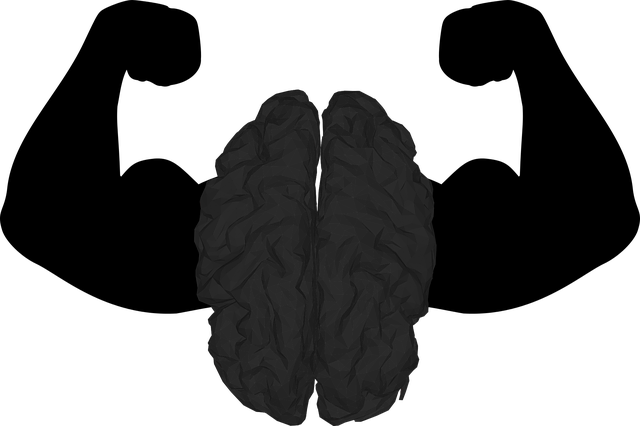Cultivating gratitude and positivity significantly enhances mental wellness through lifestyle adjustments. A balanced diet focusing on whole foods, combined with regular exercise, hydration, mindfulness, quality sleep, and portion control, supports optimal brain function. Effective stress management involves mindfulness practices, meditation, consistent sleep schedules, and avoiding processed food. These holistic approaches foster mental clarity, resilience, and overall well-being by integrating mind, body, and soul for a healthier lifestyle.
In today’s fast-paced world, cultivating gratitude and positivity is more crucial than ever for maintaining optimal mental wellness. This comprehensive guide explores the powerful impact of these practices on your overall well-being. Discover practical tips for a healthier lifestyle, including balanced diet advice, regular exercise routines, and staying hydrated tips. Learn effective stress management techniques, embrace mindfulness practices, and unlock quality sleep tips. Through healthy meal planning and portion control strategies, we’ll show you how to nurture your body while avoiding processed food.
- The Power of Gratitude and Positivity in Mental Wellness
- Lifestyle Adjustments for a Healthier Mindset
- Nutrition Strategies to Support Mental Well-being
- Mind, Body, and Soul: Integrating Practices for Balance
The Power of Gratitude and Positivity in Mental Wellness

Cultivating gratitude and positivity is a powerful tool for enhancing mental wellness and overall well-being. By focusing on the positive aspects of life, individuals can shift their mindset and improve their mental health significantly. Gratitude helps us appreciate the little things and fosters a sense of contentment, reducing negative emotions like stress and anxiety. It encourages us to reflect on the abundance in our lives, whether it’s as simple as enjoying a warm meal or appreciating nature’s beauty.
Positivity, when embraced, allows us to approach challenges with resilience and optimism. Incorporating practices such as mindfulness, regular exercise, and quality sleep can boost positive emotions. Balanced diet advice, staying hydrated, effective stress management techniques, and healthy meal planning contribute to a healthier lifestyle. Portion control strategies and avoiding processed food further support mental wellness by promoting physical health. These tips collectively create an environment conducive to nurturing gratitude and positivity, ultimately leading to a more fulfilling and resilient life.
Lifestyle Adjustments for a Healthier Mindset

Cultivating a healthier mindset is an integral part of enhancing mental wellness. Lifestyle adjustments play a pivotal role in fostering gratitude and positivity, which are key to a resilient mind. One effective strategy is adopting balanced diet advice that focuses on whole foods, ensuring adequate nutrition for both body and brain. Incorporating regular exercise routines, such as brisk walks or yoga sessions, releases endorphins, reduces stress, and promotes a sense of well-being. Staying hydrated through ample water intake is another simple yet powerful tip, supporting optimal cognitive function.
Additionally, prioritizing effective stress management techniques like mindfulness practices can significantly calm the mind. Dedicating time to meditation or deep breathing exercises helps individuals stay grounded in the present moment, reducing anxiety and fostering contentment. Quality sleep tips, such as maintaining a consistent sleep schedule and creating a relaxing bedtime routine, are essential for mental restoration. Healthy meal planning with portion control strategies ensures nutritious intake without overindulgence. Avoiding processed food is another vital step, as it can negatively impact mood and energy levels.
Nutrition Strategies to Support Mental Well-being

A healthy diet is a cornerstone of mental wellness. Incorporating tips for a healthier lifestyle involves adopting balanced diet advice. Focus on whole foods like fruits, vegetables, lean proteins, and whole grains. This ensures your brain receives essential nutrients crucial for optimal function. Avoid excessive sugar, salt, and processed food, as these can lead to mood swings and cognitive issues.
Regular exercise routines are another vital component. Engaging in physical activity releases endorphins, which act as natural stress relievers and mood boosters. Aim for at least 30 minutes of moderate exercise most days of the week. Staying hydrated is also key; adequate water intake supports brain health and overall well-being. Combine these with mindfulness practices, quality sleep tips, and portion control strategies to create a holistic approach to mental wellness.
Mind, Body, and Soul: Integrating Practices for Balance

Cultivating gratitude and positivity is a holistic approach to mental wellness, encompassing the interconnectedness of the mind, body, and soul. Achieving balance in these areas involves integrating practices that promote overall well-being.
For the mind, effective stress management through mindfulness practices like meditation or deep breathing exercises can significantly enhance mental clarity and resilience. Similarly, engaging in regular exercise routines not only improves physical health but also releases endorphins, boosting mood and reducing stress. Combining this with quality sleep tips, such as maintaining a consistent sleep schedule and creating a relaxing bedtime routine, ensures the mind and body have ample time to restore and rejuvenate. Additionally, healthy meal planning, incorporating balanced diet advice like portion control strategies and avoiding processed food, fuels both the body and mind, promoting overall mental wellness. Staying hydrated tips should also be prioritized, as proper hydration supports cognitive function and emotional balance.
Cultivating gratitude and a positive mindset is a powerful tool for enhancing mental wellness. By incorporating simple yet effective practices like regular exercise, staying hydrated, and mindful moments throughout the day, you can create a healthier lifestyle. A balanced diet with quality nutrition, coupled with adequate sleep and portion control, forms the foundation for optimal well-being. Remember, these tips are not one-size-fits-all; tailor them to your needs and preferences. With dedication, you can transform your mental health journey into a vibrant and fulfilling experience.
